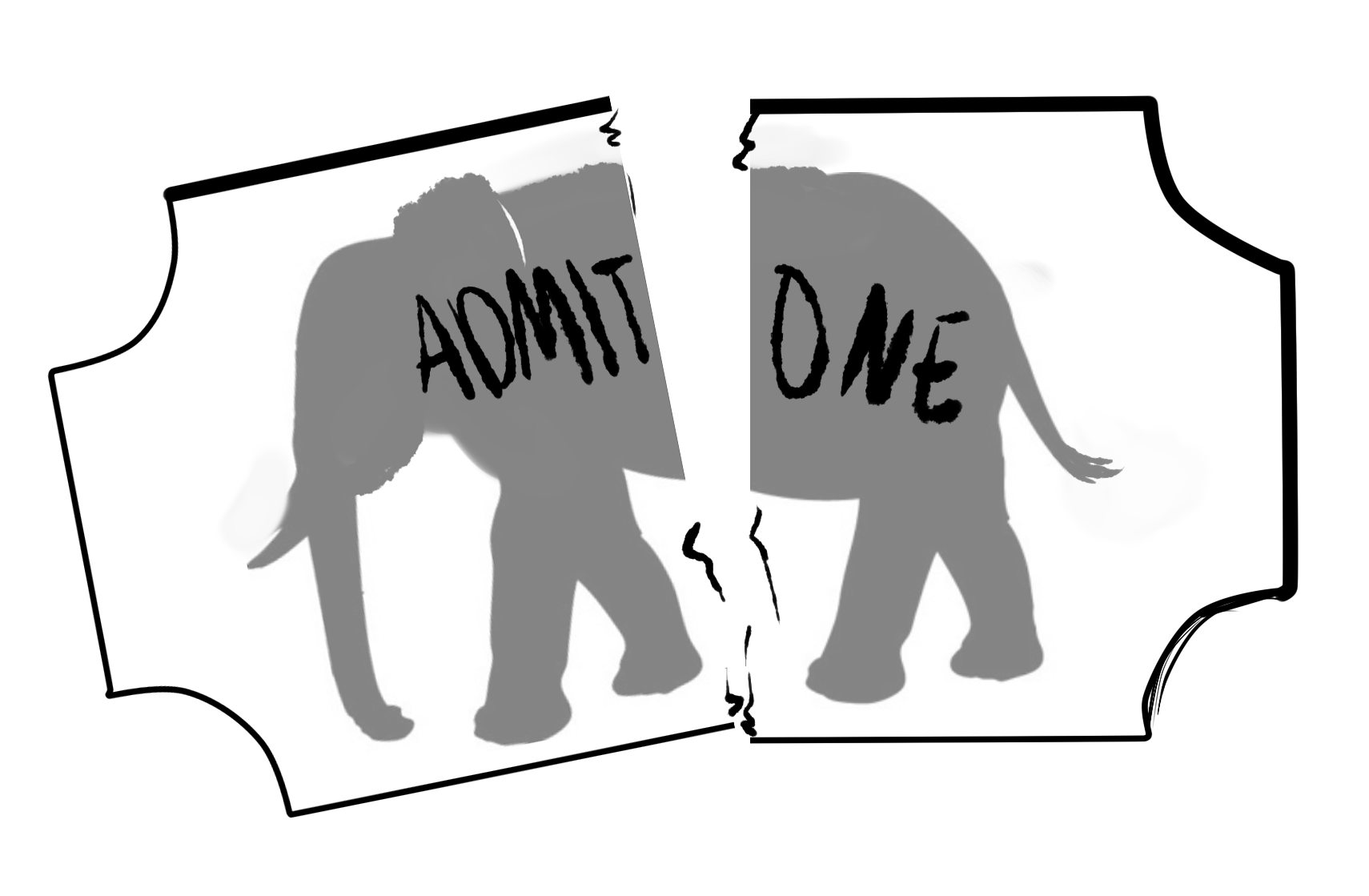Circus animal treatment, cruel and unethical
The Ringling Brothers and Barnum & Bailey circus, once known as “The Greatest Show on Earth,” has officially announced its closing in a press release from Feld Entertainment on Jan. 10. While the company and American families mourn the loss of what for many was a tradition, animal rights activists everywhere, after over 36 years of protesting, are in celebration of the news that the animal cruelty behind the scenes of the show will finally end.
The Ring. Bros. Circus has been operating since the mid-1800s.

Founded by Phineas Taylor Barnum, the show originally featured a variety of animal and human oddities, accompanied by the acrobatic talents of the Ringling brothers. Feld Entertainment bought the show in 1967, and for a little over 36 years has received extreme criticism for their treatment of the performance animals.
The Feld company has had a long-standing battle with People for the Ethical Treatment of Animals, who say the circus’ treatment of its animals is cruel and unethical. PETA has hosted a number of protests against the circus, mainly against the company’s treatment of their elephant performers.
While the Feld company has never denied nor confirmed these claims, in 2011 they did reach a settlement with the U.S. Department of Agriculture for alleged violations of the Animal Welfare Act, in which they paid a $270,000 fine, the largest civil penalty against an exhibitor in the AWA’s four-decade history.
In May of 2016, after another grueling legal battle with PETA, Feld Entertainment chose to remove elephants from the Ringling Bros’ show and send the animals to a conservation farm in Florida run by the company. The Feld company will continue caring for the retired elephants after the end of the Ring. Bros’ show, and the remaining show animals will be moved to suitable homes, which includes animal conservatories and zoos across the country. The company claims it will make sure the new homes will provide proper care for the animals that must relocate, and ensure they are equipped for animal care.
The treatment of circus and other performance animals has long been questioned, specifically with Ring Bros. use of bullhooks, chains, ropes, and electric prods used for animal training from the time of their youth. Life for preformance animals is usually a life of cruel mistreatment, and while the performance may bring joy to the viewers, is our entertainment really worth the unethical mistreatment of hundreds of animals?
Animal rights activists hope that the animal’s new homes will provide the loving and caring environment they have been deprived of, and that the Animal Welfare Act will ensure companies such as Ringling will never act in disregard of their furriest performer’s rights again.






